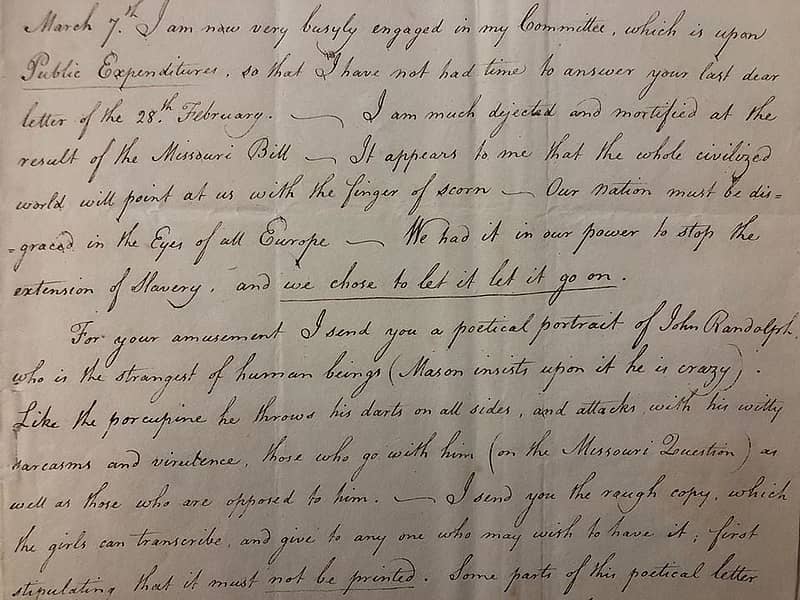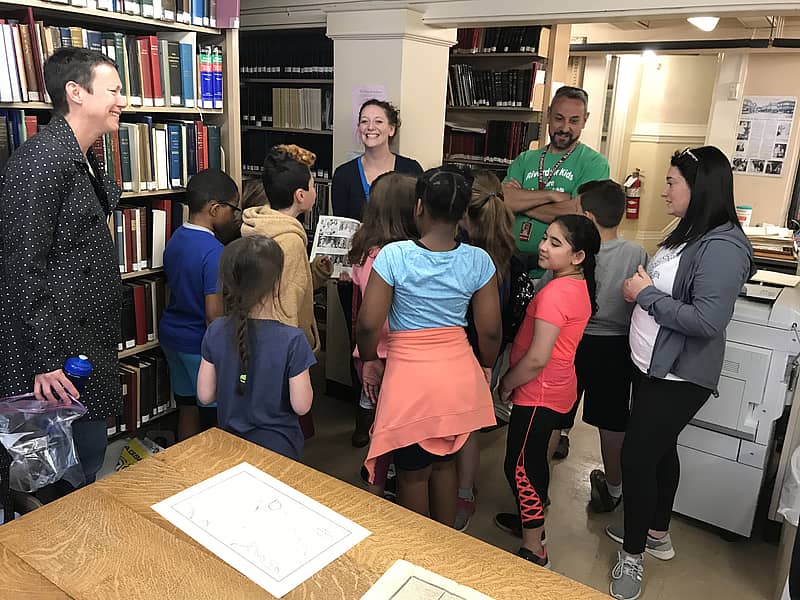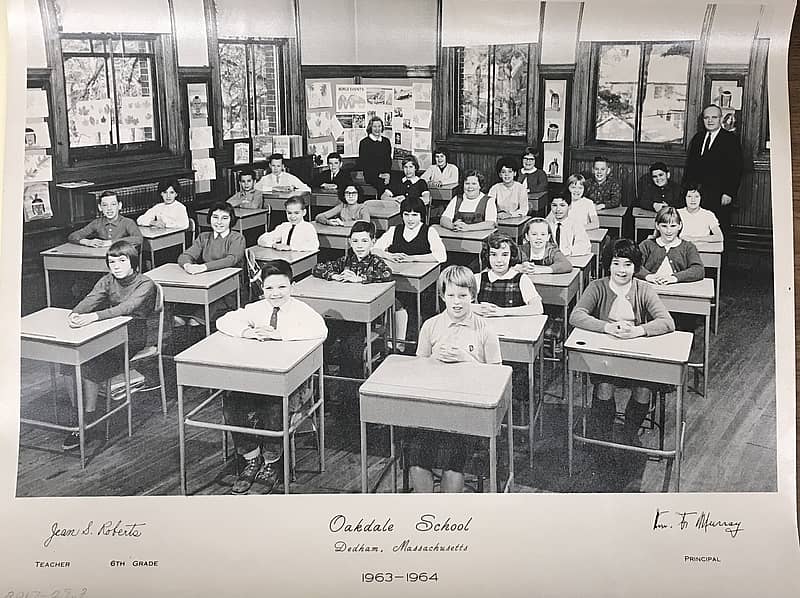The museum and archival collections at Dedham Museum & Archive provide the opportunity to use local history to engage students at all grade levels.

The Education Portal is aligned with topics taught in Massachusetts high school history curricula. The documents and objects from the museum and archive collection are intended to engage and connect students with local history.

Get a glimpse into Dedham history with a field trip to The Dedham Museum & Archive. This free, hour-long program, designed for Grades 3 and up, gives students an unusual opportunity to gain a hands-on museum experience while learning about local history.
* Field trips dates can be scheduled to meet your school’s needs.
*Groups are limited to approximately 30 students and must include 1-2 adults for every 10 children.
*Contact the Fairbanks House at 781-326-1170 about visiting their site on the same day.
For reservations please contact us at 781-326-1385
P.O. Box 215
Dedham MA 02027
We regret the Dedham Museum & Archive building is not handicapped accessible.
Due to limited parking, buses should drop-off students at the Society and return one hour later for pick-up.
This program is sponsored in part by the Dedham Women’s Club.
Dedham Museum & Archive
612 High St.
Dedham, MA 02026

Interested in bringing history into the classroom? Contact the museum office to discuss custom programs for your class.
For thousands of years, Indigenous Peoples were on the land that is now Dedham. The original footprint of Dedham rested on Massachusett and Wampanoag territory.
Read MoreIn September of 1635, the General Court issued orders for the establishment of two inland towns, Concord and Dedham. Concord incorporated the same year and Dedham did so in 1636.
Read More1635/1636What remains the longest man-made industrial canal in the nation was built from 1637-1641. The three-mile waterway connects the Charles River with the Neponset River and still regulates ⅓ of the Charles’ water. Mills along the river were built for corn, rolling copper, paper, etc. The first water-driven broad-powered loom in America was introduced in Benjamin Bussey’s (1757-1842) woolen mills.
Read More1637This was the first church established in Dedham and the fourteenth church of the Mass Bay Colony.
Read More1638On January 2, 1642/3, it was voted at a general meeting of the Town “with an unanimous consent . . . that some portion of land . . . should be set apart for publique use: viz for the Towne, the Church and a fre Schoole.” On November 1, 1644, inhabitants of the Town voted to put funds toward the “maintenance of a Free Schoole in our said Towne . . .
Read More1642/1643Adopted in Dedham (then in Suffolk County), during the Suffolk County Convention, called to protest the Coercive Act, the Resolves were carried by Paul Revere to Philadelphia, where they were unanimously passed by the Continental Congress. The Suffolk Resolves were a major development leading to the adoption of the Declaration of Independence.
1774Dedham became a transportation center with the introduction and growth of railroads in and out of the town, starting in 1835. Lines traveled to/from Boston, Providence, and New York. The existence of quick freight service promoted a burst of industrial development.
1835Recruits trained at Camp Meigs in Readville for active duty in the Civil War from 1861-1864. More than 30,000 men prepared here for battle. Of the 55 military units, three were the Union’s earliest black regiments: the 54th and 55th Regiments and the 5th Cavalry. Soldiers who died at camp are buried in Dedham’s Old Village Cemetery.
1861